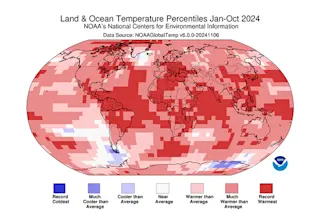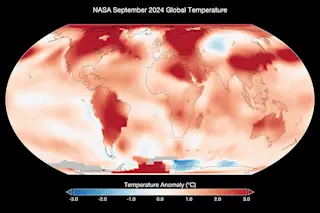The partisan climate debate seems to surprise those who don't normally swim in its treacherous waters. Joe Nocera, a NYT business columnist, appears taken aback by his experience this week, which he discusses today:
Here's the question on the table today: Can a person support the Keystone XL oil pipeline and still believe that global warming poses a serious threat? To my mind, the answer is yes. The crude oil from the tar sands of Alberta, which the pipeline would transport to American refineries on the Gulf Coast, simply will not bring about global warming apocalypse. The seemingly inexorable rise in greenhouse gas emissions is the result of deeply ingrained human habits, which will not change if the pipeline is ultimately blocked. The benefits of the oil we stand to get from Canada, via Keystone, far outweigh the environmental risks. When I tried to make that case on Tuesday, however, ...













